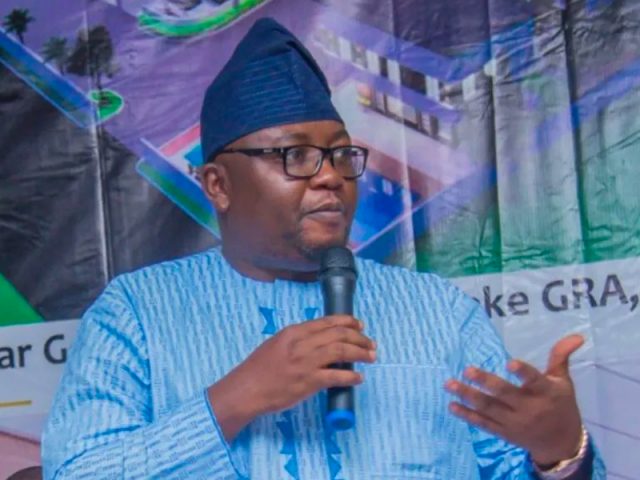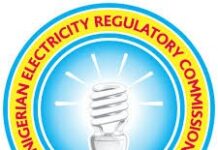•Insists N200m in monthly tariff shortfall unsustainable
•Says electricity generated, distributed has risen by almost 40% under Tinubu
CHIGOZIE AMADI
The federal government yesterday disclosed that debts owed by its Ministries, Departments and Agencies (MDAs) to the Abuja Distribution Company (Disco) have been cut by 47 per cent, from N15.53 billion to N8.17 billion.
In addition, the government stated that due to recent billing restructuring in the sector, sector liquidity in the form of available revenues, grew by 70 per cent from N1 trillion in 2023 to N1.7 trillion as of the end of 2024.
The Minister of Power, Adebayo Adelabu, who spoke at the 6th edition of the 2025 Ministerial Press Briefing Series in Abuja, organised by the Ministry of Information, projected that Nigeria’s generation will exceed 8,000mw by 2027, given the sustained growth experienced in the last two years.
He said it took the country almost 40 years to achieve an incremental generation of 2,000mw of energy in less than two years, noting that the country has now crossed the 6,000mw peak for the first time in history.
“It is evident that, due to our transformative tariff reforms, the market has generated an additional N700 billion in revenue, reflecting a 70 per cent increase. This results from the cost-reflective tariff adjustment for Band ‘A’ customers. Market revenue for 2024 rose from N1 trillion in 2023 to NGN 1.7 trillion.
“This growth in market revenue is unprecedented, as the highest growth previously achieved was 20 per cent. This positively impacts the reduction of the government-subsidised tariff shortfall by 35 per cent, decreasing it from N3 trillion to N1.9 trillion. This demonstrates that financial viability and service delivery can coexist harmoniously,” Adelabu stated.
The minister stated that to ensure a more liquid electricity market, MDAs in Abuja have been able to offset their debts, cutting it by as much as N7.36 billion or 47 per cent in recent times.
He stressed: “Furthermore, regarding market liquidity, the diligent efforts of the Nigerian Electricity Liability Management Company (NELMCO) have resulted in the reconciliation and reduction of federal MDA debts owed to Abuja Disco by 47.4 per cent, decreasing from N15.53 billion to N8.17 billion.”
According to the minister, one of the major focuses of the power sector is to improve generation and increase energy access, explaining that over the past months, it has continuously made progress in generation through some initiatives.
“On March 2, 2025, Nigeria reached a remarkable generation available capacity of 6,003mw, marking the first time this level had been recorded in the country’s history. This achievement was followed by a peak generation evacuation of 5,801.44 megawatts on March 4, 2025, which also saw an impressive daily energy output of 128,370.75 megawatt-hours on that day.
“The average daily power generated and distributed in the past quarter of 2025 was 5,700mw compared with the 4,100mw achieved in the third quarter of 2023. This indicates a growth of 1,600mw, nearly 40 per cent growth since we assumed office at the ministry. Given that it took the country almost 40 years to achieve an incremental 2,000mw average energy, we accomplished this in less than two years,” he added.
Through targeted interventions by the new management of the Niger Delta Power Holding Company, he stated that Nigeria has been able to restore 232.5 megawatts of previously idle capacity from the Omotosho and Benin plants. Besides, Adelabu said that the process of full evacuation from the Zungeru and Kashimbila hydropower plants was underway, with Zungeru currently evacuating 550mw out of the 700mw capacity, while Kashimbila evacuates 40mw of the 40mw available capacity.
He stated that the government was in the initial phases of developing the Makurdi hydro project and revitalising the Kaduna thermal plant, both of which will enhance power generation on the grid.
According to him, Makurdi holds the potential for significant hydropower generation of approximately 1500mw, while the Kaduna thermal plant is 87 per cent finished and has a capacity of 215mw, highlighting that it was inactive for about six years prior to the current administration.
“In terms of generation, Nigeria has a 14gw capacity potential of hydropower but only utilises about 20 per cent. As a result, we are working on a hydropower plan for small hydro dams under the Sustainable Power and Irrigation in Nigeria (SPIN) programme. Additional studies are ongoing, as well as studies on small hydro potential across strategic corridors—Badagry to Sokoto Highway,” he pointed out.
To strengthen the transmission network, the minister said that the Transmission Company of Nigeria (TCN) commissioned 61 new transformers totalling 5,589MVA in 2024, followed by nine additional transformers, adding 1,637.5MVA in Q1, 2025 across key locations including Lagos, Benin, Bauchi, Osogbo, Kano and Kaduna.
“With N25 billion allocated in the 2025 budget to complete all outstanding transmission projects, we are systematically addressing infrastructure gaps to deliver a more resilient and capable national grid.
“The launch of the Presidential Metering Initiative, backed by a N700 billion FAAC allocation. A new SPV has been set up with the board fully constituted to lead implementation. We target 1.1 million meters by the end of 2025, with 2 million annually for the next five years and the procurement process has started.
“Through the World Bank-funded Distribution Sector Recovery Program (DISREP), over 3.2 million meters will be procured and installed alongside meter data management solutions for Disco optimisation. The first batch of 75,000 meters under ICB1 arrived in April, with 200,000 more expected in the month of May 2025.
“Lastly, the Discos are currently undergoing restructuring aimed at enhancing service delivery and operational efficiency. Furthermore, new acquisition and management modifications are being implemented, while the Nigerian Electricity Regulatory Commission (NERC) is reinforcing the performance matrix for the Discos,” he said.
Earlier, the Minister of Information and National Orientation, Mohammed Idris, said that since the kick-off of the 2025 series in February, it has hosted ministers representing a total of seven ministries, providing first-hand facts and figures to Nigerians at home and abroad, on the policies and programmes of the administration.
“Today will not be any different – I have no doubt that you will hear a lot about the impressive efforts of the administration in advancing electricity access and affordability across the country. For President Bola Tinubu, electricity is pivotal to the administration’s major goal of industrialising Nigeria for jobs, skills, exports and prosperity,” he noted.
























